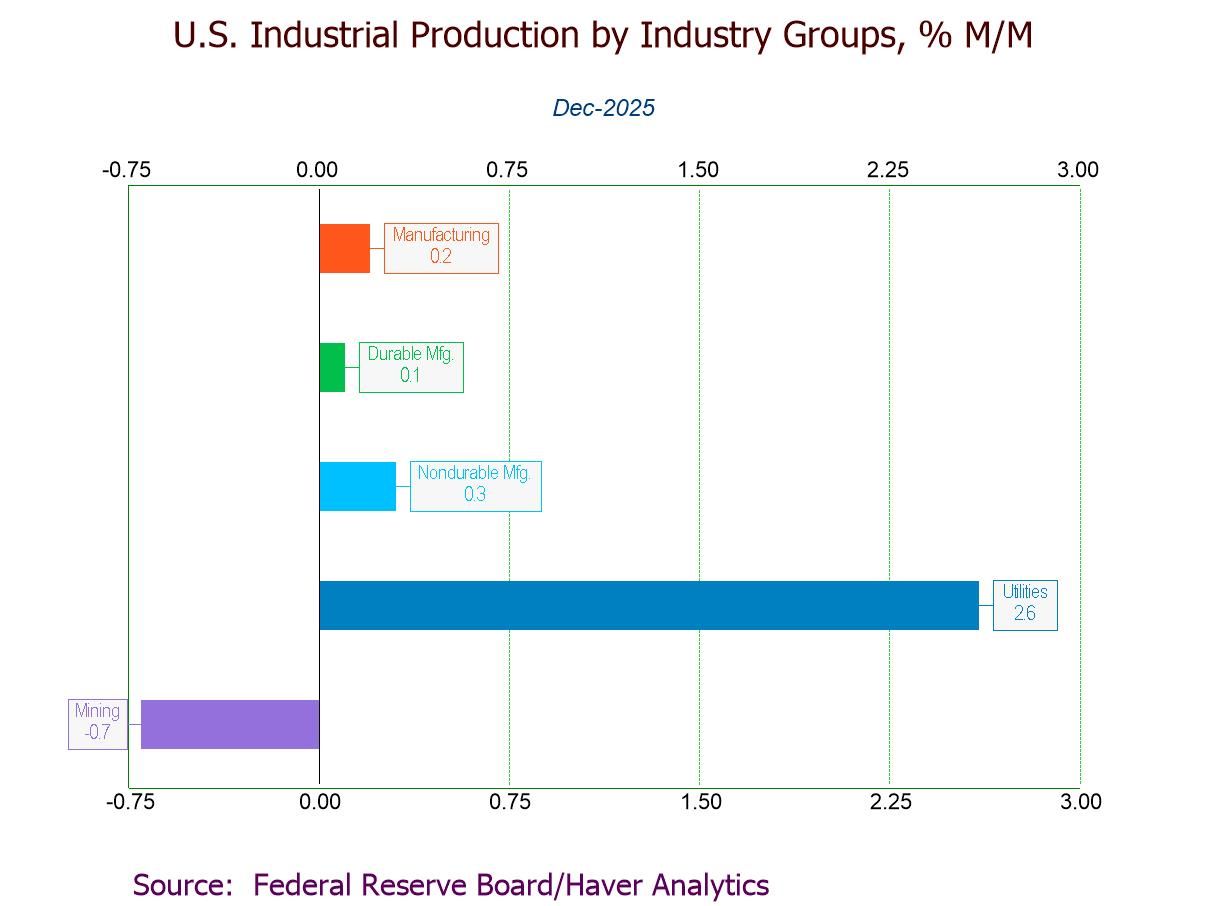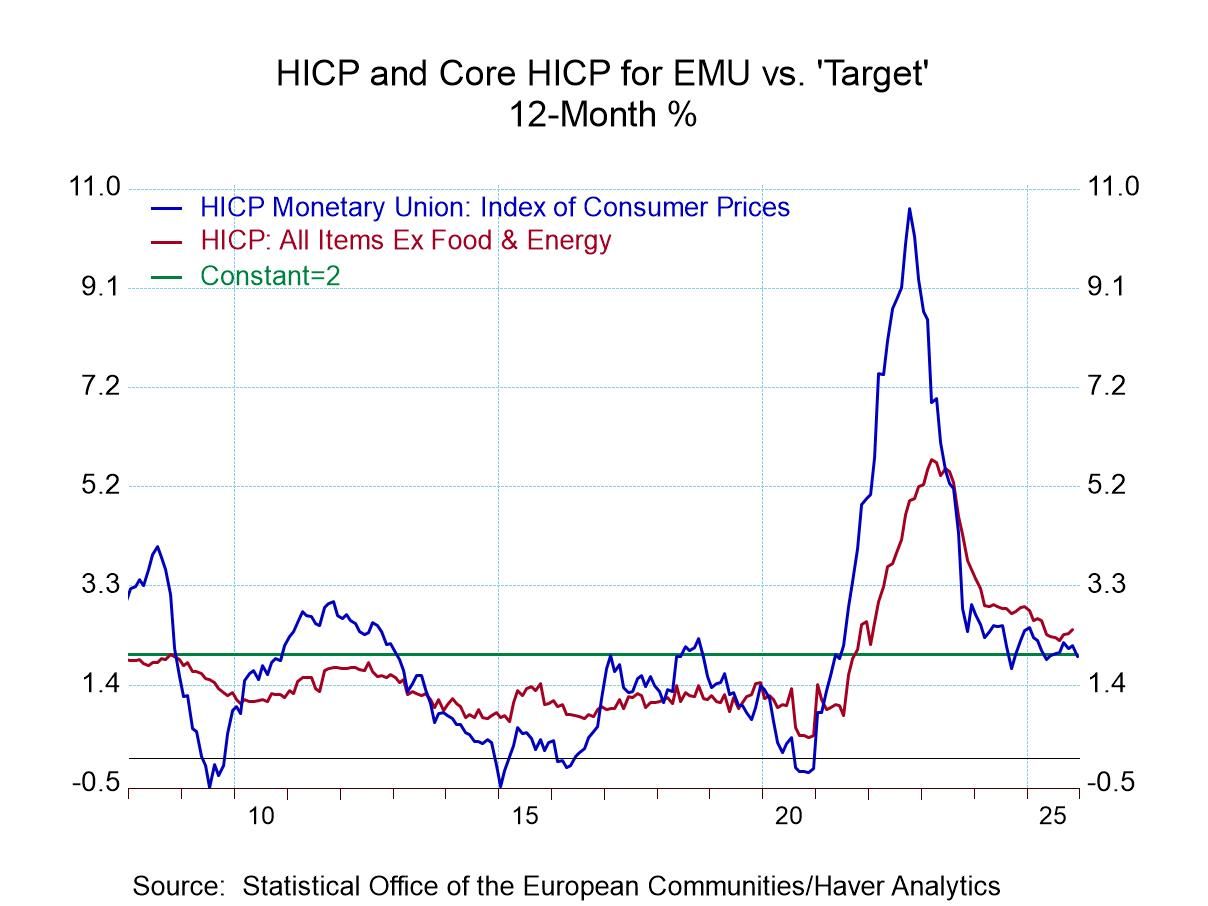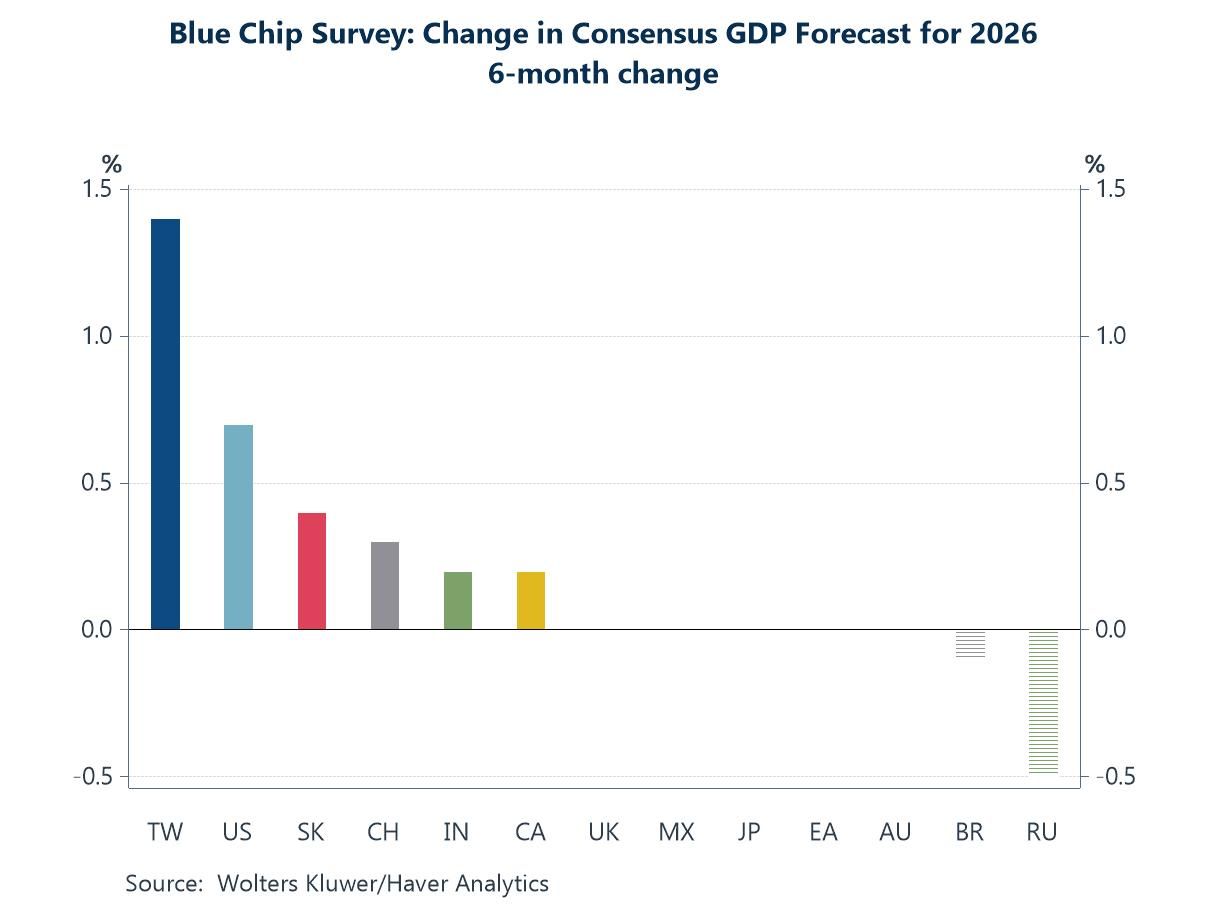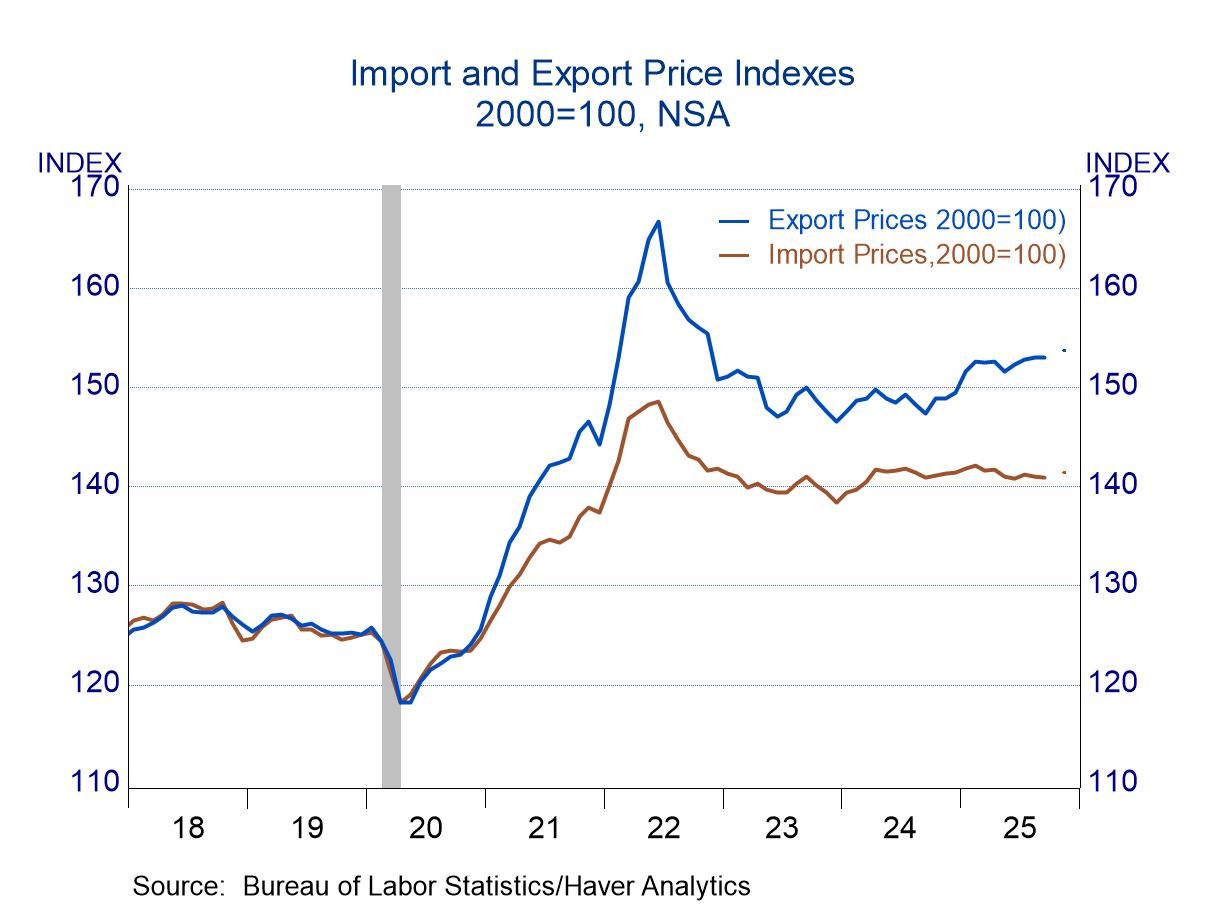 Global| Oct 11 2010
Global| Oct 11 2010OECD LEIs Point To A Slowing Global Economy...Meanwhile Currency Fears Boil Over Without Solution...
Summary
It could be worse, and maybe it will become so. But for now the OECD area is simply showing a slowing that is very widespread. But in the aftermath of this weekend's failed IMF meeting the global trade tensions have not been mended [...]
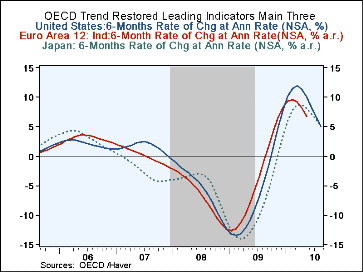 It could be worse, and maybe it will become so. But for now the OECD area is simply showing a slowing that is very widespread.
But in the aftermath of this weekend's failed IMF meeting the global trade tensions have not been mended and the currency imbroglio
is in full force. Not only is growth giving way but tensions are running high. It's a bad combination you will not find on the dollar
menu at your local fast food restaurant.
It could be worse, and maybe it will become so. But for now the OECD area is simply showing a slowing that is very widespread.
But in the aftermath of this weekend's failed IMF meeting the global trade tensions have not been mended and the currency imbroglio
is in full force. Not only is growth giving way but tensions are running high. It's a bad combination you will not find on the dollar
menu at your local fast food restaurant.
Free trade even if the rules are being broken? Economists have all sorts of theories on free trade that come down on the side of endorsing it. But all work on assumes that counties have market determined pricing. The exchange rate is assumed to be the right one. If it is not then all of that work on free trade no longer applies. When a country pegs its exchange rate we can longer make any certain statement about the propriety of that rate. We just don't know. However, we can look at certain things that happen involving an economy with a pegged or otherwise controlled rate and we can draw conclusions. For example, does the country run a trade/current account surplus? If it does, is that balance persistent? Is it growing larger? We can try to measure domestic prices Vs international (world) prices to ascertain if the peg or fix is in the right region. In other words are local yuan-adjusted prices showing the same costs domestically for the same goods outside the country when we use the pegged rate to make cross currency price comparisons?
Peg 'o my heart? In the case of China nothing supports the level of its peg. We can attach no welfare considerations to trade with China and we cannot really even call it a free-trader. The US wants to press its case of price fixing using the exchange rate argument, that's something that is unprecedented but it makes a great deal of sense. Countries that acquire huge foreign exchange reserves and run persistent current account surpluses while doing so are clear foreign exchange rate manipulators-and China is not alone in this. The phenomena I cite here may have no legal standing but they serve as clear benchmarks for thinking about rate manipulation and seeing why the WTO can't make rulings in the absence of certain foreign exchange conditions being present.
Hobbled and peg-legged - But the world economy is slowing and as it does there will be more not less pressure. China has sought to insulate itself from the international business cycle using its exchange rate but it is now too large and too rich and no longer can plead that it is a special case. China is reaching the point of really becoming a member of the club- one that must play by the rules. The OECD LEIs are a warning shot. But their message is not here and gone; it is here to stay. The message is that things are slowing and we have no idea are protracted this slowdown will be. But the tensions that surround trade will get worse before they get better.
| OECD Trend-Restored Leading Indicators | ||||||
|---|---|---|---|---|---|---|
| Growth:M/M | Growth Progression-SAAR | |||||
| Aug-10 | Jul-10 | 3Mos | 6Mos | 12Mos | Yr-Ago | |
| OECD | -0.2% | -0.2% | -2.5% | -0.9% | 3.8% | -2.0% |
| OECD7 | -0.3% | -0.3% | -3.4% | -1.6% | 3.7% | -3.3% |
| OECD Japan | 0.0% | 0.0% | -0.4% | 0.2% | 5.1% | -7.9% |
| OECD US | -0.3% | -0.3% | -3.3% | -0.8% | 5.0% | -4.2% |
| Six Months | Six Month Readings at 6Mo Intervals: | |||||
| Change in 6Mo Avg | Recent six | 6Mo Ago | 12Mo Ago | 18Mo Ago | ||
| OECD | 1.4% | 2.2% | -0.9% | 8.8% | 11.8% | -14.0% |
| OECD7 | 1.3% | 2.2% | -1.6% | 9.3% | 11.7% | -16.4% |
| OECD Japan | 1.9% | 2.7% | 0.2% | 10.3% | 5.5% | -19.6% |
| OECD US | 2.1% | 3.1% | -0.8% | 11.1% | 11.9% | -18.0% |
| Slowdowns indicated by BOLD RED | ||||||
Robert Brusca
AuthorMore in Author Profile »Robert A. Brusca is Chief Economist of Fact and Opinion Economics, a consulting firm he founded in Manhattan. He has been an economist on Wall Street for over 25 years. He has visited central banking and large institutional clients in over 30 countries in his career as an economist. Mr. Brusca was a Divisional Research Chief at the Federal Reserve Bank of NY (Chief of the International Financial markets Division), a Fed Watcher at Irving Trust and Chief Economist at Nikko Securities International. He is widely quoted and appears in various media. Mr. Brusca holds an MA and Ph.D. in economics from Michigan State University and a BA in Economics from the University of Michigan. His research pursues his strong interests in non aligned policy economics as well as international economics. FAO Economics’ research targets investors to assist them in making better investment decisions in stocks, bonds and in a variety of international assets. The company does not manage money and has no conflicts in giving economic advice.



